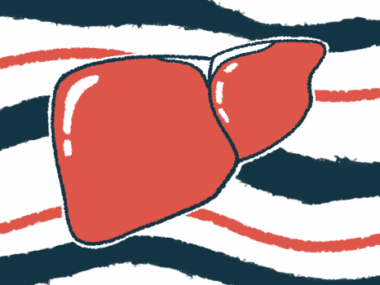RTY-694 chosen as lead treatment candidate for liver disease PSC
Therapy is designed to activate two cell surface proteins altered in disorder
Written by |

Rectify Pharmaceuticals has selected the oral small molecule RTY-694 as its lead treatment candidate for primary sclerosing cholangitis (PSC) and plans are underway to move to a first in-human clinical trial.
RTY-694 was developed through the company’s positive functional modulator (PFM) platform, which is intended to identify therapeutic candidates that boost the function of transporter proteins at the cell membrane, or surface.
“The selection of RTY-694 as our lead candidate for the treatment of PSC marks an important milestone for our company and validates our breakthrough proprietary PFM platform for developing therapies that restore and enhance membrane protein function,” Rajesh Devraj, PhD, president and CEO of Rectify, said in a company press release.
The company believes RTY-694, which is designed to simultaneously activate ABCB4 and BSEP, two cell surface proteins known to be altered in PSC, will also be of benefit in other diseases affecting the liver, gallbladder, and bile ducts, collectively known as hepatobiliary diseases.
“We believe our differentiated dual-targeted approach of addressing ABCB4 and BSEP transporter dysfunction to improve bile composition and enhance bile flow has the potential to rectify the core [disease mechanisms] of PSC and multiple hepatobiliary diseases,” said Pol Boudes, MD, Rectify’s chief medical officer. “We look forward to advancing RTY-694 to first-in-human clinical trials as we pursue our mission of helping patients with serious diseases.”
How does PSC affect the liver?
PSC is a rare liver disease characterized by chronic cholangitis, or inflammation of the ducts that carry the digestive fluid bile from the liver, where it’s produced, to the intestines.
Over time, inflammation and scar tissue accumulation (fibrosis) can narrow the ducts and lead to stalled bile flow, or cholestasis, that causes bile acids, the main component of bile, to build up in the liver and bloodstream. Over the long term, liver damage from PSC can result in liver failure and liver cancer.
There’s no approved treatments for slowing or stopping PSC-related liver damage.
Rectify is focused on developing treatments that target ATP-binding cassette transporters, a class of proteins on cell surfaces involved in exporting substances across cell membranes.
Both proteins boosted by RTY-694 play an important role in maintaining normal bile composition and bile flow by moving certain substances out of liver cells and into bile. BSEP, also known as ABCB11, transports bile salts out of liver cells, while ABCB4, also called MDR3, is involved in transporting fatty compounds called phospholipids that neutralize bile components to prevent damage to bile duct cells.
Levels of both proteins are altered in PSC and mutations in the genes that encode them have been linked to various liver conditions.
Preclinical research using mouse models showed RTY-694 treatment led to increased levels of phospholipids in bile ducts and reductions in blood levels of bile acids and liver enzymes, both markers of liver damage. The therapy also reduced signs of fibrosis and ductular reaction, which is marked by excessive growth of bile duct cells in response to liver injury.
Rectify expects RTY-694 will help restore more normal bile composition and flow in PSC and other hepatobiliary diseases, thereby slowing disease progression.



